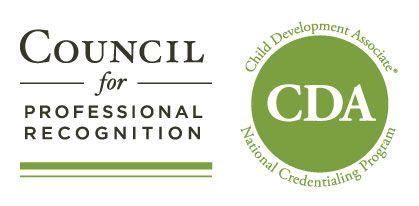
CDA Sponsors Bills Tackling Assignment of Benefits, Network Adequacy & Virtual Credit Cards
The California Dental Association (CDA) continues to lead with legislative initiatives aimed at protecting dental providers and ensuring quality patient care across the Golden State. Recently, the CDA has sponsored several impactful bills focused on assignment of benefits (AOB), network adequacy, and virtual credit cards. These legislative efforts are designed to address growing challenges faced by dental professionals within California’s complex dental insurance landscape.
Understanding the CDA’s Legislative Focus Areas
To grasp the significance of the CDA’s sponsored bills, it is important to understand the three core issues they aim to resolve:
- Assignment of Benefits (AOB): A legal arrangement allowing patients to transfer their insurance benefits directly to healthcare providers, which has sometimes led to abuse and complicated reimbursement processes.
- Network Adequacy: Ensuring dental insurance plans provide sufficient access to in-network providers, so patients can receive timely and quality dental care.
- Virtual Credit Cards: An emerging payment method insurers are using to pay providers electronically, which presents both advantages and operational challenges.
Why These Bills Matter to California’s Dental Community
The CDA’s legislative sponsorship is critical because these bills directly impact dental practices’ financial health, service delivery, and provider-patient relationships. Here’s a quick overview of the benefits the CDA aims to achieve:
- Reduce Fraud and Abuse: By regulating assignment of benefits, CDA-sponsored bills seek to minimize fraud cases linked to inflated claims and abusive third-party billing.
- Improve Patient Access: Network adequacy provisions encourage insurers to maintain sufficient dental provider networks, which helps avoid patients being forced out-of-network or facing long delays.
- Enhance Payment Transparency: Bills addressing virtual credit cards promote clarity and fairness in payment processes, helping dentists better manage reimbursements and administrative workflows.
Deep Dive: CDA Sponsored Bills & Their Key Provisions
| Bill Focus | CDA Bill Summary | Expected Impact |
|---|---|---|
| Assignment of Benefits (AOB) | Establish limits on the use and transfer of AOB to protect dentists from fraudulent billing and delayed payments. | Reduces legal disputes, speeds up claims processing, and secures provider payments. |
| Network Adequacy | Mandates minimum provider-to-patient ratios and timely access to in-network dental care. | Ensures patient access to quality care without unnecessary out-of-network charges. |
| Virtual Credit Cards | Regulates virtual credit card payments to dental providers to improve transparency and allow negotiation on transactions fees. | Increases payment predictability and reduces administrative burdens on dental offices. |
Benefits and Practical Tips for Dental Providers
Dental practitioners across California stand to gain significantly from these bills. Here are key benefits and actionable tips for dental offices preparing for their implementation:
Benefits
- Financial Security: Reduced exposure to fraudulent claims and more predictable payment schedules.
- Streamlined Operations: Clearer rules around virtual credit card fees and AOB cut down administrative headaches.
- Better Patient Relationships: Stronger network adequacy provisions encourage patient retention through in-network care options.
Practical Tips
- Review Contracts: Update dental service agreements to reflect new AOB limitations and virtual card payment terms.
- Educate Patients: Inform patients about network adequacy and how it impacts their treatment options and costs.
- Enhance Billing Systems: Leverage software solutions that optimize virtual credit card transaction tracking and reconciliation.
Case Study: CDA Members Advocate for Workforce Stability Through Network Adequacy
One CDA member, Dr. Lisa Hernandez, shared her firsthand experience with network adequacy challenges before the bill’s introduction:
“Before the new network adequacy measures, many of my patients faced approval delays or had to seek care outside my office because insurance plans didn’t have enough in-network providers nearby. The CDA’s efforts have helped create fairer access conditions, allowing me to focus on patient care rather than chasing authorizations or losing patients to out-of-network dentists.” – Dr. Lisa Hernandez, DDS
Why Patient Advocacy Aligns with CDA’s Legislative Approach
Beyond provider benefits, these bills ultimately protect patients by ensuring clarity and fairness in dental coverage, preventing surprise bills, and guaranteeing timely access to quality oral health services. The CDA’s advocacy aligns dental professionals and patient interests, fostering a sustainable dental care ecosystem in California.
Conclusion: The Future of California Dental Care is Brighter with CDA’s Legislative Leadership
The California Dental Association’s sponsorship of groundbreaking bills tackling assignment of benefits, network adequacy, and virtual credit cards demonstrates a strategic commitment to strengthening the dental profession and enhancing patient care. By addressing critical areas where insurance practices can create friction or financial risk, CDA is paving the way for greater transparency, fairness, and access in California’s dental system.
Dental providers and patients alike should stay informed about these legislative changes and embrace the benefits that they bring. For more information on CDA’s advocacy efforts and how they impact your dental practice or care options, visit the official California Dental Association website.


